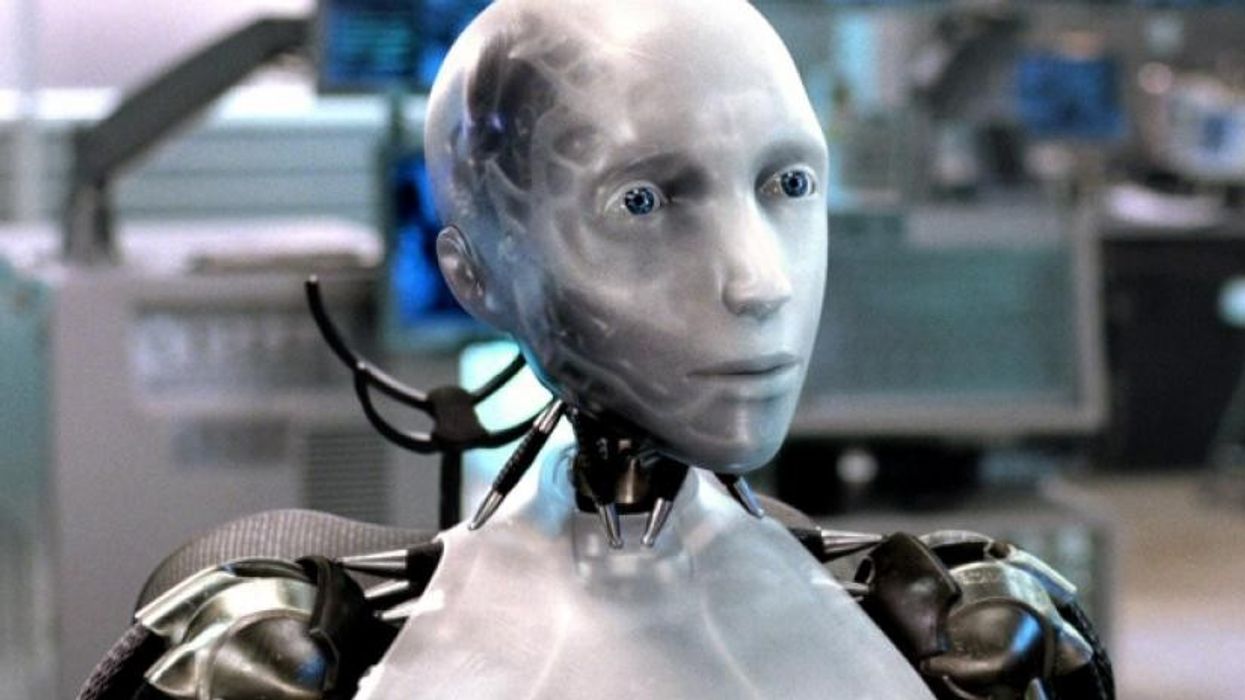Warner Bros. Will Explore if Robots Are Decent Film Executives
Can analytics and robotic AI help a studio find more success?

Now if a studio cans your project you can say it was "terminated."
Many industries rely more and more upon data analysis. Hollywood is not one of them.
Until now.
The Hollywood Reporter has a story that Warner Bros. will be working with Cinelytic to "leverage the system’s comprehensive data and predictive analytics to guide decision-making at the greenlight stage."
Now it's iRobot in a chair deciding if your spec is up to snuff.
The idea, it seems, behind Cinelytic is that it can help studios find something more like a middle ground. Less huge busts, but at the same time, not expected to be accurate at predicting massive breakout hits.
The goal here would be to identify projects that have a higher likelihood of mid-range success. Or to at the very least minimize costly failures.
Cinelytic CEO Tobias Queisser describes Cinelytic as a "one-stop-shop where you can get all the data that you need... that our clients can use to model film performance."
It sounds like a system that can help executives at the higher level know, without just anecdotal evidence and 'gut feelings' or 'hunches', if a certain combination of talents, properties, and ideas could result in a decent return or not.
There will also still be plenty of room for human executives to analyze the data and make the final call.
There are obviously some immediate questions and concerns. For example, do we really want to see the industry find ways to get more conservative about creative risk-taking?
But there may be a counterpoint.
The history of Hollywood's gatekeepers being dead set against something that turned out to be an amazing idea is a long and rich one. Is it possible we'd be better off with data telling us what could work instead of just people... who are going based on gut?
It's sort of a "Money Ball" style question. There were a lot of people who felt, and still feel, that the sports world suffered when analytics were introduced and decision making and scouting were being conducted based more upon specific sets of data points.
The idea is that the old school scout would say "That player has quick hands. He'll make a great hitter one day." Whereas the math guy in the corner would look up from his computer and say, "Actually his OBP is quite low, and his exit velocity on balls out of the zone are..." and so it goes.
Does the film industry need this?
\u201cLooking forward to seeing Robert Downey Jr and Helen Mirren in Fart Fight University.\u201d— Jemaine Clement (@Jemaine Clement) 1578551873
There is certainly a case to be made that reducing an art form to a few data points is dangerous. But it could also open up places for calculated risks on certain types of projects.
We'll be very curious to see how it develops. Maybe this is a tool that can help even an indie filmmaker figure out if their idea has viability, or help them set fundraising goals. Or help them negotiate with a producer or star.
Twitter is already dunking on the idea.
\u201cThe entire Marvel Cinematic Universe was built on Favreau convincing a bunch of executives that a middle-aged actor not long out of rehab and prison, who had described himself as "box office poison" even during his earlier 1990s heyday, would be the perfect Iron Man.\u201d— Zack Stentz (@Zack Stentz) 1578518115
It'll depend on how sophisticated and nuanced a tool like Cinelytic becomes, but we're certainly watching with great interest.
We're very curious to hear what the filmmaking community thinks as well. Do we hate the idea of executives being replaced by robots? Or do some of us kinda love it...?
Let us know what you think below...











